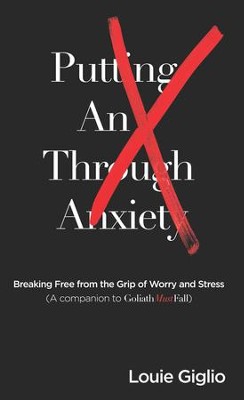Conversation Matters
Description
Search the Internet these days and you will find an abundance of entries on the art of conversation. Best-selling books have been written on how to interact with anyone from bus driver to head of state. Whether from the shortened sound bites of “Twitter” to the perpetual conflicts in government, the practice and the art of having meaningful and constructive conversation seems to be the topic of conversation! Sadly, it seems that opportunities for honesty, authenticity, and respectful debate are waning in today’s information-saturated yet disconnected world. When real conversations happen they are a true gift.
In recognizing both the gift of and the need for conversation in my own life, I discovered something very interesting captured by the writers of the Bible. Recorded within its pages are some fascinating conversations between God and various individuals. Far from being the polite, deferential, and circumscribed conversations of a more politically correct age, these conversations are full of questions, challenge, and doubt. These features, in and of themselves, should grab the attention of even a casual reader, for how many of us if given the opportunity to have a close encounter with God would even have the ability to speak? And yet, the writers of Scripture saw fit to capture even the kind of conversations in which the Almighty God engages reluctant and less than willing humans.
Early in the narrative of Genesis, for example, the first time we hear Abraham engage God in conversation, he responds to the promises issued by God to give him great reward with a certain level of incredulity.(1) “O Lord God, what will you give me, since I am childless?” (Genesis 15:2). These are the very first recorded words of Abraham. As far as we are told from the biblical story, Abraham left his country and family of origin without question; he heard God’s great promise of a great nation and blessing without any question or doubt. Yet his first recorded words question God. When visited by God at Mamre prior to the destruction of Sodom and Gomorrah, Abraham bargained with God to spare the city. Lower and lower fell the number of the righteous required to save it until finally God promised not to destroy it if ten righteous persons were found.
Moses also questions God in his encounter with the Almighty.(2) Despite seeing a bush burning with fire but not consumed, despite seeing his shepherd’s staff transformed into a serpent, and despite seeing his hand become leprous and then healed of leprosy, Moses fires back question after question and challenge after challenge to the God revealed specially and uniquely to him: “I AM THAT I AM; I WILL BE WHO I WILL BE.” Moses appears not to recognize his conversation partner, the God of his father, the God of Abraham, the God of Isaac, and the God of Jacob, as he questions God repeatedly in their dramatic conversation: “Who am I, that I should go to Pharaoh, and that I should bring the sons of Israel out of Egypt?” (Exodus 3:11). “Now they may say to me, ‘What is God’s name?’ What shall I say to them?” (Exodus 3:13). “What if they will not believe me, or listen to what I say?” (Exodus 4:1). “Please, Lord, I have never been eloquent, neither in the past nor since you have spoken to your servant. I am slow of speech and tongue” (Exodus 4:10). “Please Lord, send someone else to do it” (Exodus 4:13).
What amazes me about these dialogues is that they are included in the Bible at all. For on the surface, it appears that these are not examples of great conversations for God. If we simply evaluated them on contemporary conversational etiquette, or persuasive ability, neither party does very well. God isn’t very successful in terms of persuasion and the human conversation partners are better at giving excuses than giving respect. But of course, there is more to the story. As Abraham and Moses continue their conversations with God—as one offers up the child of promise for sacrifice, as the other negotiates with Pharaoh and then shepherds the Israelites in the wilderness—we hear complaint, lament, question, and argumentation that we could hardly imagine, let alone speak before the Almighty. And yet, Abraham is called “the friend of God” (Isaiah 41:8) and Moses beholds the glory of God on Mount Sinai (Exodus 33:18-9). The conversation matters—even conversation that questions and argues—for God values communion. Indeed, Abraham and Moses, Job, the psalmists, and the prophets all provide us with rich and engaging narratives of authentic, challenging, questioning, and even argumentative conversation with God.
Despite Moses’s questioning of God, the Scripture tells us that “The LORD would speak to Moses face to face, as a man speaks with his friend” (Exodus 33:11). Perhaps the way we talk with God illuminates our willingness to engage in great conversation. Indeed, perhaps the way we talk with God illuminates the depth of our friendship.
(1) Genesis 15:1.(2) See Exodus 3-4.
 Overcome challenges with guided prayer, journal prompts, and God’s wisdom using iDisciple Growth Plans.
Overcome challenges with guided prayer, journal prompts, and God’s wisdom using iDisciple Growth Plans.

-12.png)








